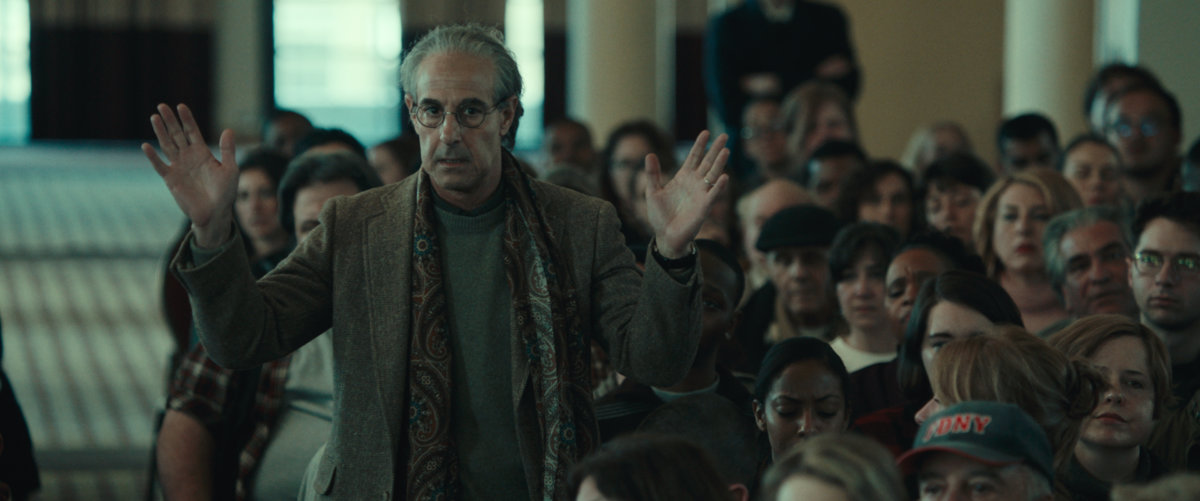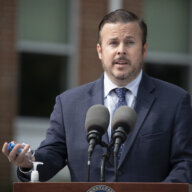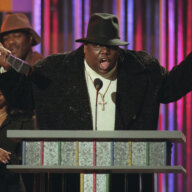After 9/11, the effects of one of the deadliest terrorist attacks in our country’s history were surrounded by fear, panic, a need for connection, but also for some, overwhelming grief.
For those who were personally affected in the latter, there was one aspect that drove even more salt to the wounds after losing a loved one—financial compensation. After the death of a family member in an event such as this, the government stepped in to provide financial support in the form of one man, Kenneth Feinberg, and to stabilize the economy, it was his mission to get the victim’s families to sign on with a fund.
However, this did not come without its own sets of problems, both morally and ethically.
“I was first brought Feinberg’s memoir the end of 2007 and I was fascinated with the story,” says screenwriter Max Borenstein. “I felt like it could make a great movie, but I didn’t know if I could do it…it was such a challenging line to walk between this sort of dry procedural side of things and the administration of the fund, and then the overly extreme emotion that you’re dealing with through all of these people who’ve just experienced the worst event in their lives.”
It wasn’t until after Borenstein sat down with Feinberg (played by Michael Keaton in the film)—who was appointed Special Master of the U.S. government’s September 11th Victim Compensation Fund and served as the Special Master for TARP Executive Compensation—and his right-hand administrator and partner Camille Biros (Amy Ryan), that Borenstein felt like he could tackle this subject for the screen. It was through those conversations that he realized their own process of having to deal with everybody’s grief and trying to do a job, while at the same time realizing that it would be more than just the numbers… they would have to gauge and lead with an empathetic ear when dealing with all of this raw pain and messy humanity.
“I think it’s important in the film, and [Ken] would be the first to say this, that his story is not a heroic journey that you might expect when you hear a log-line about one man against the bureaucracy—that’s not what this is,” Borenstein explains. “He was one American who happened to be qualified in a particular area of the law, and so, because he wanted to give back and do what he could and do his civic duty in the moment of his country’s need when he volunteered, he had no idea what he was signing up for really.”
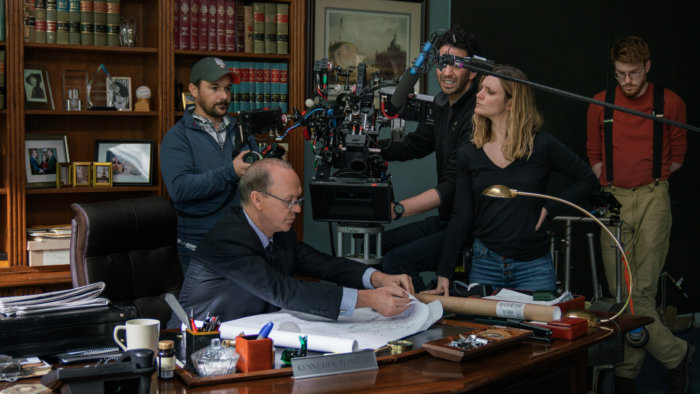
As you see in ‘Worth,’ Feinberg’s expertise was dealing with the administration of huge class-action lawsuits years after the actual damage had been done, and with the events of 9/11, he is there just weeks after the damage.
“He came face-to-face to what he wasn’t accustomed too…pain and grief, as opposed to lawyers,” continues Borenstein. “Ultimately there were flaws in the law itself and problematic things he couldn’t fix. Then there were problematic areas in his own design of the fund and administration… the learning curve was more than just the problematic aspects, it was the realization that his job at the moment was not just to do the practical, but actually to show the empathy and care of the American people towards people who have lost their loved ones in that event.”
What Feinberg has to deal with on one hand is the economic side of the law and saving the airline industry. Meanwhile, there’s the moral side of it all, which deals with actual human beings and the fact that their government is trying to put a price tag on a person who meant so much to them, a person they just lost so suddenly. This is also where Stanley Tucci’s character, Charles Wolf, comes in. Wolf was someone who Feinberg spoke about in his book and then Borenstein met while researching. Wolf had lost his wife Catherine during her first week of work in the Towers and he was at home when he saw the plane fly really low out of his window. He suffered health problems and he lost his wife in the blink of an eye.
“When the fund began, he was offended deeply not about the government’s compensation, but that the law mandated that compensation be based on economic values of the lives lost so to speak… as if there could be one. In that building you had such a dichotomy of wealth and poverty,” explains Borenstein. “In [those buildings], there was everyone from undocumented workers to the top earners on Wall Street… it was such an impossible scenario, one that was in a sense set up to fail. No one could be happy with that, to be told that their son or daughter who was a dishwasher was worthless in the eyes of the government.”
In ‘Worth’ audiences see Tucci’s character trying to fix the fund with his own website calling for action. In the end, Tucci’s Wolf and Keaton’s Feinberg reach a point of understanding, though it takes time. It’s effective however, and ultimately what drives people to sign on in the end and it was a pivotal moment in bringing people aboard.
Although the story of Charles Wolf is just one of many examined in the film (and his is the only one using his true name and details for privacy reasons), there are many that stuck with Feinberg and Borenstein.
“You’re not left always with a perfect memory and that doesn’t always make it less tragic, if anything, it means the wounds are harder to heal, ” says Borenstien when referencing other cases he talks to Feinberg about. “In that case and in many others, rather than it being people who lost someone and now had to be compensated, there were scenarios in which people are still dealing with complicated aftermath. The loss itself had only opened a greater wound that still had to be resolved with Ken and Camille at the center. ”
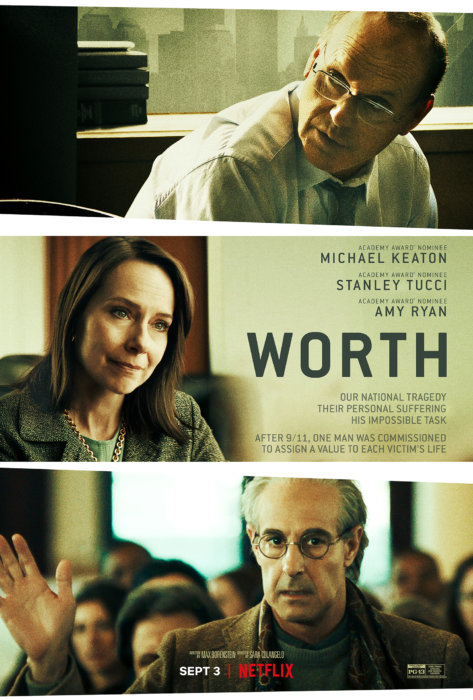
With such a hugely impactful tragedy and the results that came with it, everyone’s point of view on the world changed. That’s part of the reason why Borenstein wanted to make this in the first place, especially in New York—it meant something for every person who worked on the project.
“As much as it is about this event and the aftermath of 9/11, I think it’s a hopeful and redemptive film because ultimately, it’s about grief and healing,” he explains. “More than that, it’s about the way in which citizens and people doing their civic duty working for the government can actually have an impact and lead in a positive way if they lead with empathy.
“In a time when we face such monumental challenges and such division, it’s hopeful, I think, and really important to remember that it’s possible for government to function well when people are trying to the right thing. It’s not only possible, but essential that the government take on tasks like that to help its citizens. This is 20 years ago, but it was a bi-partisan effort. It wasn’t perfect, it was flawed, but it was an example of government and bureaucracy doing something positive for the people all over the country.”
‘Worth’ drops on Netflix Sept. 3.



